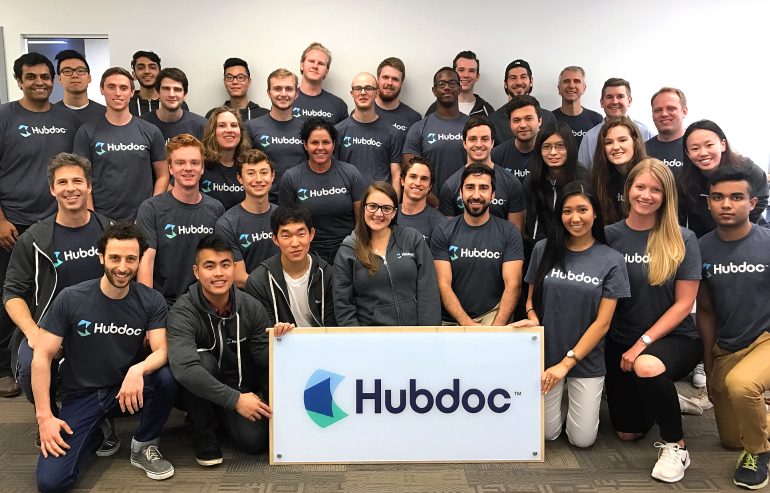Accounting service Xero announced today that it has acquired Toronto-based document management startup Hubdoc for $70 million USD, in a mix of cash and equity.
Hubdoc’s service automatically fetches financial data from over 700 services, including utilities, telecom providers, banks and online vendors. That data can then be integrated into accounting services such as Xero (officially launching in Canada in May of this year, Xero has more than 1.4 million subscribers across 180 countries). Hubdoc has featured Xero integration since 2014, and the accounting service provider indicated that the acquisition will allow both companies to develop deeper integrations, as well as new product offerings.
“It was definitely an inflection point for us. We had amazing offers from some of the best venture firms in the world.”
“Bringing Hubdoc into the Xero family will enable us to take the next step in delivering a platform that seamlessly connects small businesses with their financial data and their accountants and bookkeepers,” said Keri Gohman, President for Xero Americas. “This is all about accelerating our ability to streamline the collection and classification of that data so that small businesses and their advisors can answer the big questions, and find lasting success.”
Hubdoc, comprised of 100 employees and headquartered in Toronto, will continue to operate independently, with co-founders Jamie Shulman and Jamie McDonald at the helm (reporting to Gohman). The company currently services customers in North America, Australia, and the United Kingdom.
Speaking with McDonald, the co-founder said the acquisition well-positions Hubdoc for global reach by leveraging Xero’s scale. “We’ve got great overlap in our markets, and a great overlap in our product vision,” he said. “We think the two products together give us access to global scale and global distribution.”
The plan, for now, is to focus on co-marketing and bundling opportunities, turning Hubdoc’s Toronto office into a beachhead to establish a bigger North American presence for Xero. Similarly, Hubdoc’s Sydney and London offices, featuring the bulk of Xero’s market, will likely also expand to support. The longterm vision is going from an API to true product integration, which will take some time and coordination (“They’ve got a full product roadmap and we’ve got a full product roadmap,” McDonald said).
While the pairing makes perfect sense for the Toronto startup, McDonald indicated it wasn’t the only offer Hubdoc had on the table, but the best one. Sources familiar with the deal indicated that Xero ‘trumped’ a sizeable financing round to acquire the company. McDonald wouldn’t confirm details about the “other set of options” before the company, but had this to say:
“It was definitely an inflection point for us. We had amazing offers from some of the best venture firms in the world to put in a significant amount of capital to go big, or to fulfill the same product vision but on a giant global platform. You try to make a rational decision in a scenario like that.”
McDonald credited Hubdoc’s capital efficient growth strategy for allowing the company the breathing room to make such a decision. The company closed a healthy $6 million CAD round in June of last year led by BDC and Round13, which followed a smaller, unannounced round led by Fairfax Financial after the company’s founding in 2014. McDonald said the focus on customer success and building a small team over fundraising “just creates a lot of optionality for everyone when you do that.”
With aligned objectives and good deal terms, McDonald seemed more excited by the acquisition than most founders. Citing a currently small market penetration of cloud accounting services globally despite its inevitability, and the potential for leveraging deep data integrations, McDonald concluded by saying that he’s “going to be a shareholder of Xero for a very long time.”
This article has been updated with additional files.


